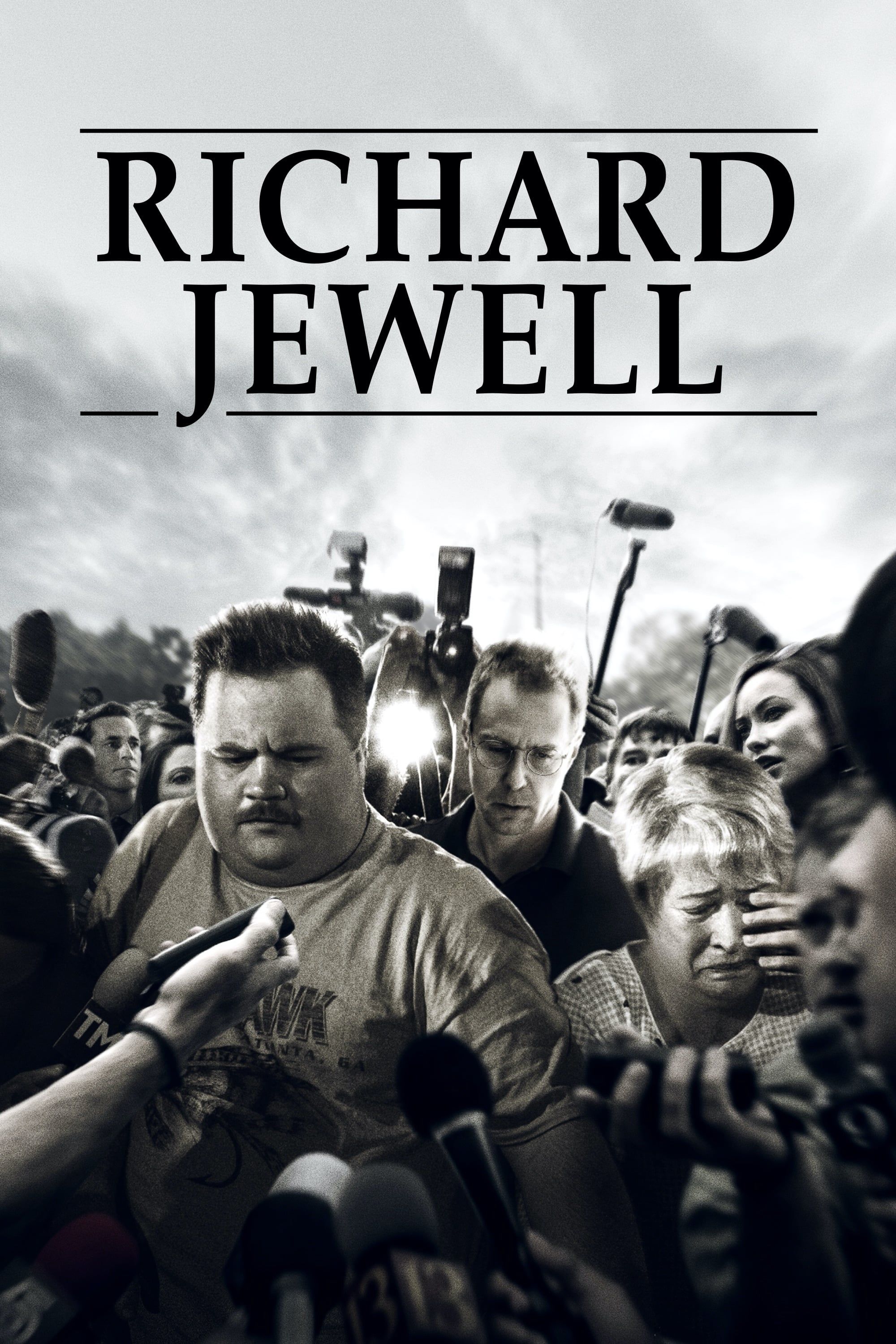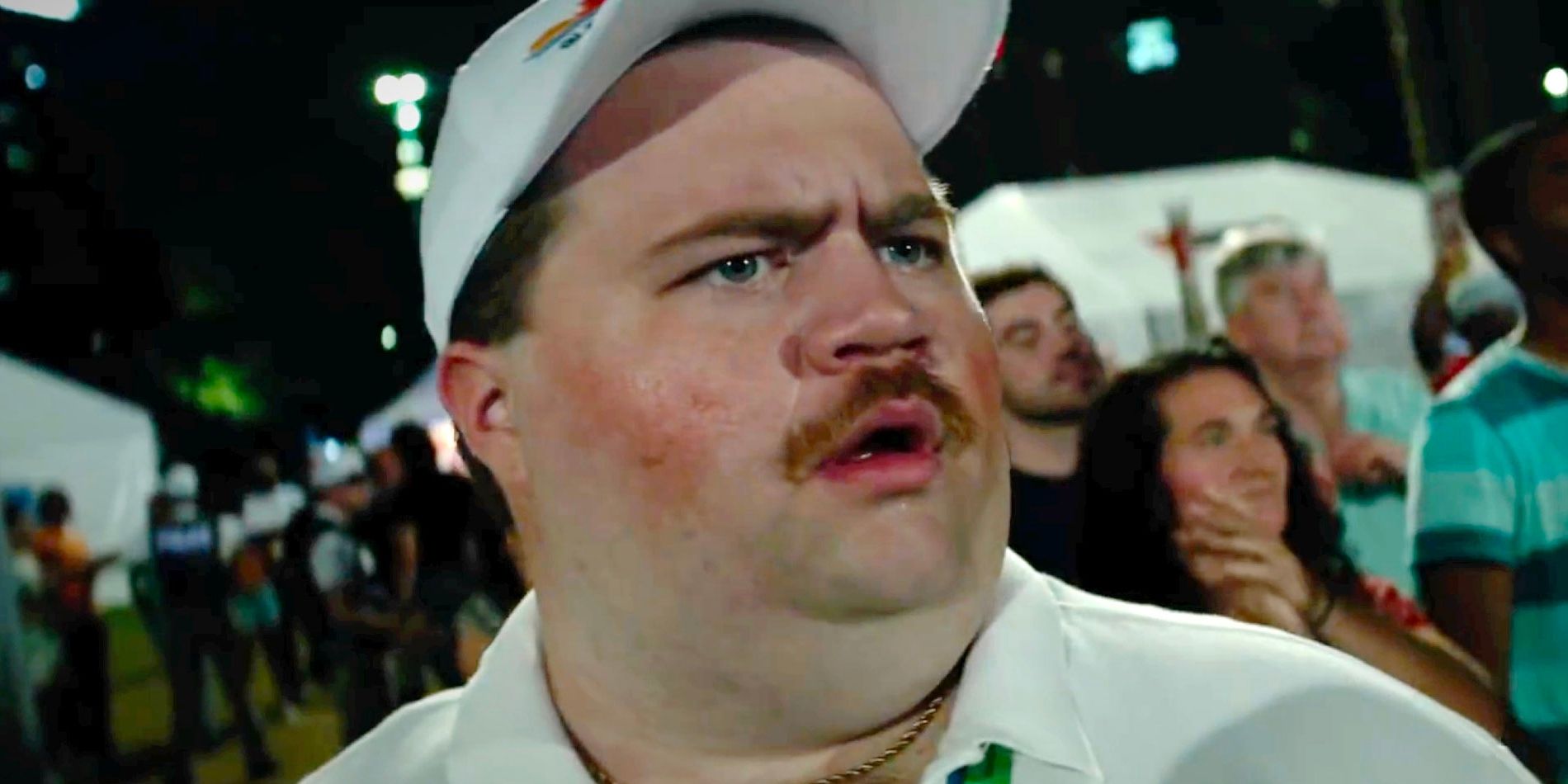Have you ever felt that unsettling feeling when the news hits fast, and opinions form even quicker? It's a bit like when you try to figure out whom to trust in a new situation, or perhaps, for some, it feels like trying to decide whom to support for a public office, when you just never know whom to vote for with these choices. The story of Richard Jewell is, in a way, a very powerful reminder of just how fast public opinion can turn, and how deeply it can affect a person's life.
This is a tale about a security guard who, in the summer of 1996, went from being seen as a hero to becoming the main suspect in a terrible act of violence. He was the one who spotted a suspicious backpack during the Olympic Games in Atlanta, and his quick actions helped save many lives. Yet, almost overnight, the spotlight shifted, and he found himself caught in a very difficult situation.
His experience really shows us a lot about how information spreads, how news gets reported, and the heavy weight of suspicion. We'll look at the details of what happened to Richard Jewell, what we can learn from his journey, and why his story still matters to us today, as of this very moment, in May 2024.
Table of Contents
- Biography of Richard Jewell
- The Media's Role and Public Perception
- Lessons Learned from Richard Jewell's Story
- Frequently Asked Questions About Richard Jewell
- Conclusion
Biography of Richard Jewell
Richard Jewell's life took a really unexpected turn in 1996. He was a regular person, just trying to do his job, when he became caught up in a huge national event. His story is quite a powerful example of how quickly someone's life can change because of things outside their control, and how public attention can be both a blessing and a heavy burden.
Personal Details and Bio Data
| Detail | Information |
|---|---|
| Full Name | Richard Allensworth Jewell |
| Born | December 17, 1962 |
| Died | August 29, 2007 (age 44) |
| Birthplace | Danville, Georgia, USA |
| Occupation | Security Guard, Police Officer |
| Known For | Falsely accused in the 1996 Centennial Olympic Park bombing |
| Cause of Death | Heart failure with complications from diabetes |
Early Life and Background
Richard Jewell grew up in Georgia. He had a deep interest in law enforcement from a young age. He worked in various security and police roles, including as a jailer and a police officer. He often seemed to want to help keep people safe. He was, you know, someone who liked order and felt a pull towards protecting others. This background really shaped his actions when the moment came at the Olympics.
The Olympic Park Bombing: A Moment of Heroism
On July 27, 1996, during the Summer Olympics in Atlanta, Georgia, Richard Jewell was working as a security guard. He was at Centennial Olympic Park, a very busy place filled with people enjoying the games. He noticed a suspicious green backpack sitting under a bench. It seemed out of place, so he acted quickly.
He told police officers about the bag and helped clear people away from the area. Just minutes later, a pipe bomb inside the backpack exploded. This terrible blast killed one person directly and caused a heart attack in another person who died later. More than 100 people got hurt. But because Richard Jewell warned people and helped move them, many, many more lives were saved. He was, basically, a hero in that very moment.
The Sudden Shift to Suspect
For a short time, Richard Jewell was celebrated. News reports called him a hero. But then, just a few days later, the story took a really dark turn. The FBI, which was looking into the bombing, started to focus on Richard Jewell as a possible suspect. They thought he might have planted the bomb himself to then "discover" it and look like a hero. This idea, as a matter of fact, is sometimes called the "hero bomber" profile.
Soon, news organizations got wind of this. On July 30, 1996, an Atlanta newspaper reported that Jewell was the focus of the investigation. This report, and others that followed, really painted him in a bad light. It was as if, you know, the whole world suddenly decided he was guilty. The media attention was intense, with cameras outside his home and reporters following his every move. He was, quite frankly, put through a very public trial by news outlets.
He was never actually charged with the bombing. The FBI investigated him for 88 days. They searched his home and questioned him for hours. This period was incredibly hard for him and his family. He went from being someone praised for saving lives to someone widely believed to be a dangerous criminal. It was a very stark change, and it really shows how quickly public perception can turn, even without official charges.
Exoneration and Aftermath
On October 26, 1996, the U.S. Attorney for the Northern District of Georgia officially cleared Richard Jewell. He said that Jewell was no longer a suspect. This was a huge relief for Jewell, but the damage had already been done. His reputation was badly hurt. The wrongful suspicion had a lasting effect on his life, and he really struggled to get back to a normal routine. He faced a lot of public doubt and suspicion for quite some time, even after being cleared.
Richard Jewell later sued several news organizations for defamation, meaning they had harmed his good name by reporting false information. He settled some of these lawsuits, which helped him get some money to try and rebuild his life. However, he never fully recovered from the ordeal. He passed away in 2007 at the age of 44, suffering from heart problems and diabetes, conditions that his lawyers and family felt were made worse by the stress of his experience.
The Media's Role and Public Perception
The way Richard Jewell's story unfolded really shines a light on the huge power of the media. When the news first broke that he was a suspect, many news outlets, frankly, rushed to report it. They often presented the information as if he were already guilty, rather than just a person being investigated. This quick reporting, without all the facts, really shaped how the public saw him. It's a bit like when you see those online discussions, you know, where topics get "closed thread tags" and the conversation moves on, sometimes before all the facts are out, leaving a very strong impression.
This situation sparked a big discussion about media ethics. People started asking if news organizations have a responsibility to be more careful, especially when someone's reputation is on the line. The rush to be first with a story can sometimes mean that accuracy gets pushed aside. For Richard Jewell, this meant his name was dragged through the mud, even though he was innocent. It really highlights the need for careful reporting and for news to focus on facts, not just speculation.
The public, too, plays a part in this. We tend to believe what we hear, especially when it comes from trusted news sources. Richard Jewell's story is a powerful reminder that we, as readers and viewers, also have a role to play. We should, arguably, question what we hear and look for more than one source of information before forming our own strong opinions. It's just a good practice to be a bit skeptical and seek out the full picture.
Lessons Learned from Richard Jewell's Story
The story of Richard Jewell gives us many things to think about. It's not just a sad tale about one person; it offers broader lessons about justice, the media, and how society works. We can, for instance, take away some very important points from his experience.
First, it teaches us about the idea of "innocent until proven guilty." In Richard Jewell's case, it felt to many like he was treated as "guilty until proven innocent" by the public and the media. This really goes against a core principle of our justice system. It's a reminder that we should always wait for the full legal process to play out before making up our minds about someone's guilt or innocence. It's a very basic but important idea.
Second, the story highlights the huge influence of news reporting. News outlets have a very big job, and with that comes a lot of responsibility. What they choose to report, and how they report it, can have a truly massive impact on people's lives. It encourages us to think about how we get our news and to consider if the information is balanced and fair. It's something to, you know, really pay attention to.
Third, it reminds us about the importance of being careful consumers of information. In today's world, news spreads incredibly fast, especially online. It's easy to get caught up in headlines or quick summaries. Richard Jewell's experience shows us why it's so important to dig a little deeper, to look for more details, and to think critically about what we read or hear. We should, basically, always try to get the whole story before we make a judgment.
Finally, his story is a human one. It's about a person whose life was turned upside down. It shows the real, personal cost of wrongful accusation and public scrutiny. It encourages empathy and understanding for those who find themselves in similar situations. It's a very powerful testament to the strength of the human spirit, even when faced with extreme pressure and unfairness. You can learn more about media responsibility on our site, and it's something we should all think about, frankly.
Frequently Asked Questions About Richard Jewell
People often have questions about Richard Jewell and what happened to him. Here are some common ones:
Was Richard Jewell innocent of the bombing?
Yes, absolutely. Richard Jewell was completely innocent of the Centennial Olympic Park bombing. The FBI officially cleared him as a suspect in October 1996, after a thorough investigation. The actual bomber, Eric Rudolph, was later identified and caught. He pleaded guilty to the Olympic Park bombing and other attacks in 2005.
How did Richard Jewell die?
Richard Jewell passed away on August 29, 2007, at the age of 44. His death was due to heart failure, and he also had complications from diabetes. Many people close to him felt that the immense stress and pressure he endured from the wrongful accusation and public scrutiny contributed to his health problems.
What happened to the media outlets that accused Richard Jewell?
Several news organizations faced lawsuits from Richard Jewell for defamation. Some, like NBC and CNN, settled with him out of court. The Atlanta Journal-Constitution, however, fought the lawsuit for many years. While Jewell did not win his case against them before he died, the legal battles brought a lot of attention to how news is reported and the ethics involved. It really sparked a conversation about journalistic practices, and that's a good thing, you know, for everyone.
Conclusion
Richard Jewell's story is a very powerful reminder of how quickly life can change and the heavy weight of public judgment. It shows us, quite clearly, the lasting effects of being wrongly accused, especially when the media gets involved in a big way. His experience makes us think deeply about how we get our news, how we form our own opinions, and the vital importance of basic fairness.
It encourages us to remember that behind every headline, there's a real person. We should always try to be thoughtful and patient when big news breaks, making sure we have all the facts before we decide what we believe. His story, you know, really pushes us to be more careful, more understanding, and more aware of the impact our quick judgments can have on others. To learn more about the FBI's investigation into the bombing, you can visit their official site. It's a story that still teaches us so much today, and you can also learn more about how stories like this affect public trust on this page.



Detail Author:
- Name : Cale Stamm
- Username : nyah.becker
- Email : krajcik.vivianne@powlowski.com
- Birthdate : 2006-03-16
- Address : 46442 Kuhlman Ridge Suite 420 Hackettside, HI 82077
- Phone : 724.251.0947
- Company : Huel Ltd
- Job : Underground Mining
- Bio : Qui veritatis quo nesciunt illo suscipit. Facere sunt quae aut est ipsum. Qui eum incidunt unde aut dolorem et. Sed eos facere eos.
Socials
twitter:
- url : https://twitter.com/lelandparker
- username : lelandparker
- bio : Ratione repellat et ipsa quis. Voluptate molestiae in possimus cumque omnis omnis doloribus. Non repellendus aspernatur quod cupiditate quibusdam sed.
- followers : 481
- following : 2156
linkedin:
- url : https://linkedin.com/in/leland9007
- username : leland9007
- bio : Ut quia enim quo officiis dolor.
- followers : 1045
- following : 1904
facebook:
- url : https://facebook.com/lparker
- username : lparker
- bio : Recusandae et magnam omnis voluptatem ex quam.
- followers : 5987
- following : 1608

